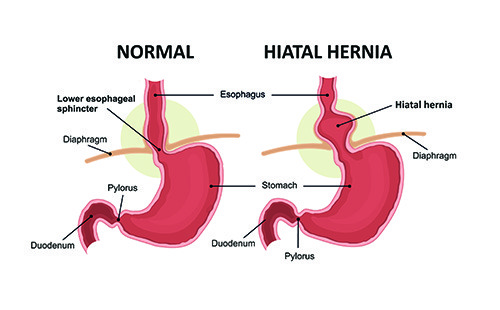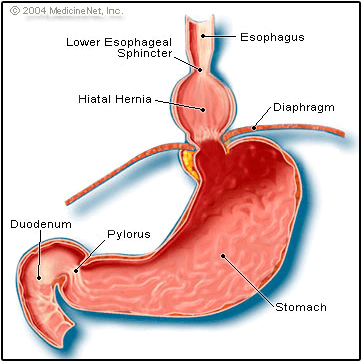Hiatal Hernia Surgery
About the Hiatal Hernia Procedure
Preparing for Surgery: As with most surgeries, the doctor will advise you not to eat or drink at a specified time, as well as what medications you can or cannot take. As with every surgery, you will be provided with individualized precautions from a doctor at Olde Del Mar Surgical based on your needs.
Recovery Time: After Hiatal Hernia Surgery, most patients are allowed to go home the same day, although we recommend you have someone drive you home. You will be advised to avoid heavy lifting for 2 to 3 weeks as well as return back to work after this time.
After 3-6 weeks, you may return to your regular diet but avoid acidic foods, alcohol, carbonated beverages, beans, and any other food that the doctor suggests. Of course, recovery time will vary depending on the patient, but the doctors at Olde Del Mar Surgical will tailor this time specifically for you.
Pain After Surgery: Pain can vary from patient to patient; however, most should feel minimal pain. Slight discomfort may occur in the abdomen and chest with difficulty swallowing. This discomfort should be alleviated within 48 hours. If too much pain is present, you may take medication as advised by your doctor at Olde Del Mar Surgical.
Hiatal Hernia Treatment at Olde Del Mar Surgical
To effectively eliminate symptoms, Hiatal hernias require surgery. Hiatal hernia surgery is a minimally invasive surgery involving laparoscopic techniques, using a small surgical tool to make about 5 small incisions in the abdominal wall. Although the procedure is extremely complex, Olde Del Mar Surgical has successfully completed hundreds of surgeries in San Diego, both for revisional and treatment purposes.
By using a series of small cuts, laparoscopic procedures (or “keyhole” surgery) remove the need for one large incision. Through the use of a video monitor and mechanical surgical instruments, this robotic surgery has made open surgery less of a requirement. Recovery time and success rates have improved as well and only general anesthesia is needed during the procedure.
Some patients who have surgery for a hiatal hernia can experience difficulty swallowing or feeling bloated for up to 3 months after surgery. Most of the time these symptoms do not persist, and the likelihood of successful repair of the hiatal hernia approaches 95%.
For patients who suffer from severe obesity, in addition to a hiatal hernia, it is sometimes preferable to combine hiatal hernia repair with weight loss surgery. Depending on the type of bariatric surgery, recovery rates mirror that of hiatal hernia surgery.
A few of the more common procedures are gastric bypass, Sadi duodenal switch, and gastric sleeve. Each has its own pre and post-op procedures that differ from hernia surgery. Olde Del Mar’s Provider Team in La Jolla would be happy to discuss whether or not this might be a preferred approach in your case.

